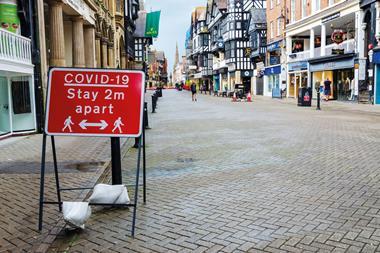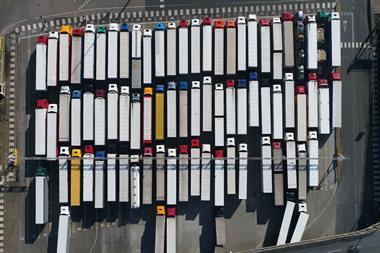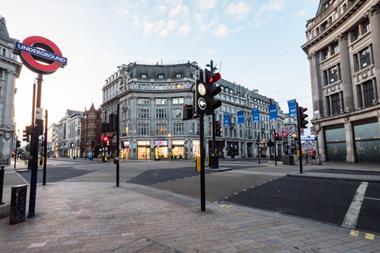‘Non-essential’ retailers in London and the Southeast of England have been forced to shut shops in the final week of Christmas trading under new tier four restrictions.
Non-essential retailers across London and the Southeast were told to shut up shop from midnight on Sunday, December 20, by the government.
The decision, which retailers were given with less than 12 hours’ notice, comes as a highly contagious new strain of Covid-19 triggered a spike in cases across London and other regions in the Southeast including Kent, Buckinghamshire and Portsmouth.
Under the new tier four restrictions people have been told to return to the ‘stay at home’ guidance issued during the first national lockdown in March and discard previous Christmas instructions.
Under these regulations all non-essential shops across tier four have closed, although retailers will still be able to offer click-and-collect services from stores if they are able.
A review of the tier four regulations will take place on December 30.
Tier four closures come at a critical time for retailers in the final week of Christmas trading. On Saturday, the final full day of trading before the new lockdown rules were imposed, retail footfall was down 40% year on year, according to ShopperTrak data.
British Retail Consortium chief executive Helen Dickinson said: “We recognise that the government has difficult decisions to make and the situation with the pandemic is very fast-moving, but this is hugely regrettable news.
“Retailers have invested hundreds of millions of pounds making stores Covid-secure for customers and staff, and Sage’s advice has said throughout that closing non-essential retail has a minimal impact on the spread of the virus.
“The consequences of this decision will be severe. For businesses, the government’s stop-start approach is deeply unhelpful – this decision comes only two weeks after the end of the last national lockdown and right in the middle of peak trading, which so many are depending on to power their recovery.
“Faced with this news – and the prospect of losing £2bn per week in sales for the third time this year – many businesses will be in serious difficulty and many thousands of jobs could be at risk.
“The government will need to offer additional financial support to help these businesses get back on an even keel – an extension to business rates relief in 2021 is the best place to start.”
Andrew Goodacre, chief executive of the British Independent Retailers Association (Bira), said the closures in the South and Southeast were “a disaster”.
“They have only been open for 17 days in the busiest month of the year and will now miss out on the festive period and New Year sales.”
In response to the rapidly spreading new strain of coronavirus France has announced a two-day freight and travel ban to and from the UK, leading to concerns that some imported foodstuffs could run out in as little as two weeks.
The prime minister is chairing a Cobra crisis meeting today, which a spokesperson for Number 10 said would “discuss the situation regarding international travel, in particular the steady flow of freight into and out of the UK”.


























1 Reader's comment